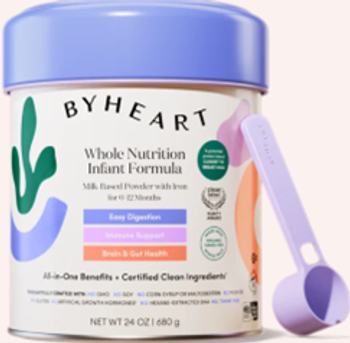
Fructose-Obesity Connection Exposed: Can of Soda Metabolized Much Like Can of Beer, Says Lustig
In his plenary address of October 19, Dr Robert H. Lustig delivered a powerful, scientifically rigorous indictment of the central role of fructose in the current epidemic of childhood obesity.
In his plenary address of October 19, Dr Robert H. Lustig delivered a powerful, scientifically rigorous indictment of the central role of fructose in the current epidemic of childhood obesity. The fact that the epidemic now extends to 6-month-old infants makes clear, he said, that diet and exercise cannot be the sole culprits. Only a food exposure of some sort can explain obesity in a baby.Dr Lustig, who is a professor of pediatric endocrinology and director of the Weight Assessment for Teen and Child Health (WATCH) Program at the University of California, San Francisco, presented powerful evidence that the food exposure in question is fructose. Because of the markedly increased use of fructose – especially high-fructose corn syrup – in prepared foods and beverages, Americans’ consumption of fructose has risen astronomically in recent decades. This trend was accentuated by the demonization of dietary fat and the craze for low-fat diets. As food manufacturers took out fats, they replaced them with sugars – a large proportion of which were in the form of high-fructose corn syrup.
Fructose metabolized like fat – just as alcohol is.
Dr Lustig did a masterful job of explaining the many ways in which fructose metabolism differs from human metabolism of glucose. When glucose is metabolized, it promotes a nice negative feedback pathway involving the liver, pancreas, and brain. The end result is that, through the suppression of ghrelin, the appetite for more glucose is suppressed and glucose consumption is kept in check. Insulin performs efficiently, and energy is stored in a usable form.Fructose metabolism takes a very different form. In fact, it is metabolized by the liver in many ways just like a fat – and 30% of fructose actually ends up as fat. By-products of fructose metabolism include uric acid (which causes hypertension), very low-density lipoprotein (VLDL) cholesterol and triglycerides (which contribute to dyslipidemia), and free fatty acids (which lead to insulin resistance). These are all components of the metabolic syndrome. In addition, fructose leads to leptin resistance, thereby setting up a positive feedback pathway in which continuous consumption is promoted. (Dr. Lustig pointed out that these problems are all minimized when fructose is consumed in the form of whole fruit, since whole fruit always contains significant amounts of fiber , and fiber works to counteract the effects of fructose in a variety of ways. “When G-d made the poison, he packaged it with the antidote,” he said.Dr Lustig noted that fructose metabolism also is strikingly similar to the way in which ethanol is metabolized. He made the graphic point that a 150-calorie can of soda and a 150-calorie beer both lead to 90 calories reaching the liver, and that both result in the toxic by-products of VLDL cholesterol and excess free fatty acids. Excess alcohol consumption and excess fructose consumption also result in many of the same health problems. Both cause hypertension, dyslipidemia, insulin resistance, and fatty liver disease.
AAP called to task.
The American Heart Association (AHA) in recent recommendations has noted the role of added sugars in increasing the risk of heart disease. Dr Lustig called on the American Academy of Pediatrics (AAP) to follow the AHA’s lead and to update its recommendations regarding fructose consumption by children. Current AAP guidelines allow for 2 of the 4 recommended daily fruits to be consumed in the form of juice. That, he said, is unacceptable. He also noted that many currently available infant formulas have such high sugar contents that they are basically “baby milkshakes.”“We as pediatricians are on the front lines; we can fix this,” he declared. The audience rose to its feet and applauded.
Newsletter
Access practical, evidence-based guidance to support better care for our youngest patients. Join our email list for the latest clinical updates.



